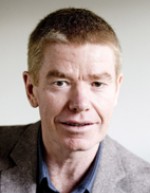
Professor Steven Chown (Monash University) was elected President of the Scientific Committee for Antarctic Research (SCAR) until 2020 at the 2016 SCAR Delegates Meeting.
At the same meeting, Hobart was selected to host the 2020 Delegates’ Meeting and Open Science Conference. The bid for the meeting and conference was led by the Academy’s National Committee for Antarctic Research in partnership with the Tasmanian Government and Australian Antarctic Division.
A proposal to merge ICSU with the International Social Science Council (ISSC) was approved in principle at an extraordinary General Assembly in Oslo in October. The councils of the two bodies will establish a transition task force to develop detailed transition plans, which will be put to a vote during a joint meeting of ICSU and ISSC members in October 2017 during the 32nd ICSU General Assembly in Taipei. If endorsed, the transition will be implemented and overseen by the ISSC and ICSU executives, with a founding General Assembly of the new organisation tentatively planned for October 2018.
The executives of both organisations unanimously endorsed the merger following the recommendation of a joint working group on the relationship between the two Councils. A merged body will provide a unified, global voice for social and natural sciences.
More information on the ICSU–ISSC merger
As the Australian adhering body to ICSU, 20 ICSU unions and 11 ICSU interdisciplinary bodies, the Academy is undertaking its regular 10-yearly review of Australia’s membership levels of these organisations. The review committee has recommended to the Academy’s Executive Committee that all memberships are retained; however, due to increasing membership costs, the Academy will lower membership levels of the highest-cost dues to remain within its budget. These recommendations will come into effect from 2017.
The Academy regrets that Federal support to enable payment of the climate science subscriptions (Future Earth, the World Climate Research Programme and the Scientific Committee on Oceanic Research) was discontinued in 2015 and replacement funding has not been identified. The subscriptions for these bodies will remain in arrears until funding is secured. The review committee is continuing to work with the relevant National Committees for Science and the secretariat to identify possible sources of funding.
The National Committees for Science, which serve as the Academy’s links to the international unions and the relevant Australian communities, were consulted throughout the review process. If you have any queries about the review please email the National Committees office.
Professor Cheryl Praeger AM FAA has been elected as Member-at-Large to the Executive Board of the Association of Academies and Societies of Sciences in Asia (AASSA) for a two-year term.
AASSA is made up of 34 science and technological academies and societies throughout Asia and the Pacific region and is one of four regional affiliated networks of the InterAcademy Partnership (IAP). One of the Academy’s priorities is to contribute Australian expertise and leadership in regional and global science networks, with election to the Executive Board of AASSA is an important step in achieving this goal.
The Academy has previously been represented on the Executive Board of AASSA by Professor Kurt Lambeck AO FAA FRS and Professor Jenny Graves AO FAA.
© 2026 Australian Academy of Science